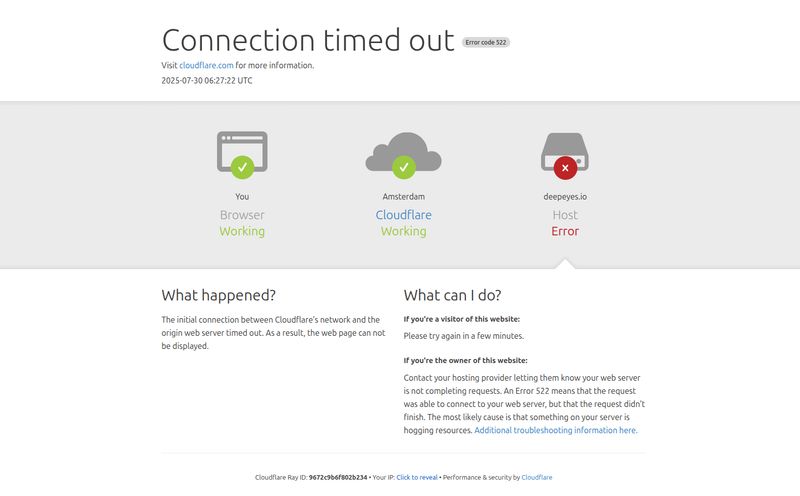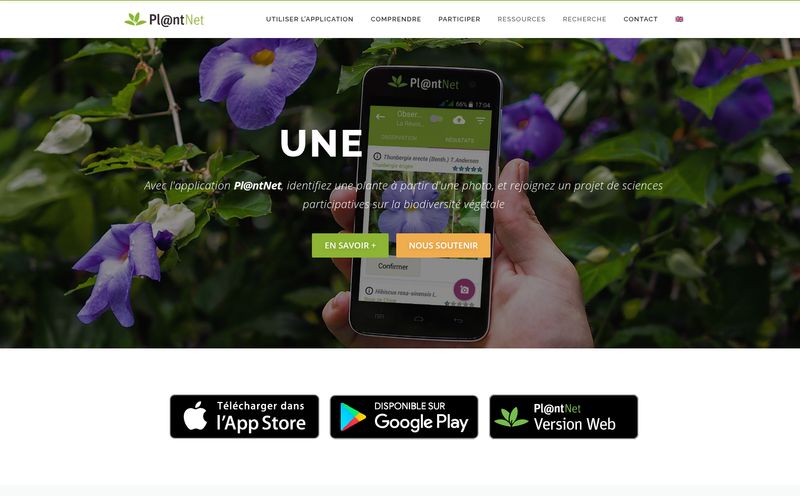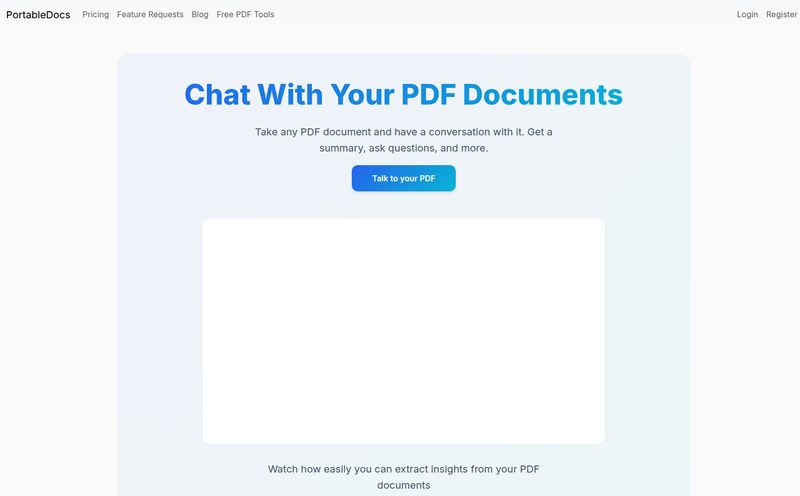Alright, let’s have a real chat. If you’re in the SEO, marketing, or data world, you know the grind. The endless, mind-numbing task of collecting data. I’ve been there. I’ve spent more late nights than I care to admit, cobbling together spreadsheets, trying to scrape competitor info, or just pulling together stats for a 'definitive' guide. It’s the digital equivalent of digging a ditch. Necessary, but man, does it suck the life out of you.
Then along came the AI revolution. Suddenly, we had these incredible tools that could write, code, and brainstorm. But we also ran headfirst into a new problem: AI’s tendency to, well, lie. Not maliciously, of course. It’s what the academics call “hallucination,” where a generative AI model confidently states something that is completely fabricated. Ask it for a list of companies with specific revenue, and it might just invent them. That’s a massive problem when you need real, verifiable data.
So, when I heard about a platform called Golden Dataset that claims to automate data collection from the real internet, my ears perked up. Could this be the tool that handles the grunt work without the fantasy? I had to find out.
What Even Is Golden Dataset?
Let's break it down. Golden Dataset isn't another chatbot or a content spinner. Think of it more like a team of hyper-efficient, tireless research assistants. You give it a set of instructions—a prompt, if you will—and its AI bots go out and scour the public web to find the information you need. They then compile their findings into a structured, custom dataset just for you.

Visit Golden Dataset
So, instead of you manually opening 50 tabs to find the headquarters of every company on a list, you just tell the Golden Dataset bots what you're looking for. It’s designed to fetch factual data that already exists, not generate new, potentially imaginary information. This is a critical distinction, and honestly, it’s the whole point.
The Elephant in the Room: AI Hallucinations vs. Real Data
I’ve been playing with generative AI since the early days of GPT-3. It’s fantastic for brainstorming blog post ideas or drafting an email. But for hard data? I've been burned. I once asked an AI to generate a list of recent tech startups in Austin that had received Series A funding. The list it gave me looked plausible... until I started Googling the names. Half of them were ghosts. Companies that never existed, founders that were figments of the algorithm's imagination. It was a complete waste of time.
How Golden Dataset Sidesteps the AI Mirage
This is where Golden Dataset’s approach really gets interesting. It’s not a generative model in the same vein as ChatGPT. It’s a retrieval and compilation model. It’s like the difference between asking a creative novelist to write a history book versus asking a librarian to pull all the existing books on a topic. The novelist might write a compelling, but factually questionable story. The librarian gives you the sources. Golden Dataset is the librarian. It works with publicly available information, so the data it returns is grounded in reality. This dramatically reduces the risk of those pesky hallucinations, which for anyone doing serious market research or data analysis, is a godsend.
So, What Can You Actually Do With It? (Use Cases)
This is where the rubber meets the road. A tool is only as good as what it helps you accomplish. I started brainstorming, and the possibilities are pretty broad:
- Market Research: Imagine you need a list of all SaaS companies in the fintech space, along with their founding dates, headquarters, and a link to their pricing page. Instead of a week of manual searching, you could set up a query and get a structured file. That's powerful.
- Lead Generation: You could ask for a dataset of all marketing agencies in California that have a blog. Or maybe e-commerce stores that use a specific payment processor. This is targeted lead-gen on a whole new level.
- Content & SEO: Need to gather stats for a big industry report? Or find a list of all the articles that mention a specific keyword on a set of competitor blogs? This could seriously speed up the research phase of content creation.
- AI Model Training: If you're building a smaller, specialized AI model, you need good, clean training data. Golden Dataset can be your engine for creating those niche datasets that just don't exist off-the-shelf.
It’s really about turning the unstructured chaos of the internet into organized, actionable information. That’s been the holy grail for a lot of us for a long time.
Let's Talk Money: The Golden Dataset Pricing Model
Okay, the big question. What’s this gonna cost me? I was pleasantly surprised to see it’s not some exorbitant monthly subscription you're locked into. Golden Dataset uses a credit-based system they call “Golden Credits.”
"Most datasets cost between $.10 to $10. Cost can vary based on size, sources, and complexity."
I actually really like this approach. It’s a pay-as-you-go model. If you have a small, simple request, you pay a small amount. If you’re asking it to do something incredibly complex, like analyzing thousands of web pages, the cost will be higher. The best part? The platform gives you an estimated cost range before you hit the 'go' button. So you’re not just throwing money into a black box and hoping for the best. This transparency is a huge plus in my book.
The Good, The Bad, and The Realistic
No tool is perfect. After poking around and thinking through the implications, here’s my honest breakdown.
The Upside: Where It Shines
The biggest pro is the automation of real data collection. It saves an incredible amount of time and manual effort—the kind of work that nobody enjoys. Getting access to large-scale, real-world data without the risk of generative AI hallucinations is the core value proposition, and it’s a strong one. For anyone whose job relies on accurate information, this is a massive benefit.
The Caveats: What You Need to Know
Let's be real, though. The platform’s biggest strength is also its main limitation. It can only find what’s publicly available on the internet. It can’t access private databases, peek behind paywalls, or get you information that a company has deliberately kept private. This is not a magic wand. Also, the cost is variable. While the estimates are great, for very complex, ongoing projects, the costs could add up, so you'll need to factor that into your budget. It’s an operational tool, not a one-time purchase.
My Final Verdict: Is Golden Dataset Worth Your Time?
So, do I think Golden Dataset is going to put every data analyst out of a job? No. But I do think it’s a powerful new kind of tool in our arsenal. It’s a force multiplier. It takes care of the most tedious part of the data gathering process, freeing up us humans to do the more important work: analysis, strategy, and drawing insights from the data.
If you’re a solo consultant, a small marketing team, or a researcher who constantly needs structured data from the web, this could be a game-changer. It’s a specialized tool for a specialized job. It’s not trying to be everything to everyone. It’s trying to be the absolute best at turning the messy, sprawling web into clean, usable datasets.
And in my experience, a tool that does one thing exceptionally well is often more valuable than one that does a dozen things poorly. I'm genuinely excited to see how this evolves. It feels like a smart, practical application of AI that solves a very real, very annoying problem.
Frequently Asked Questions about Golden Dataset
- 1. How is Golden Dataset different from ChatGPT or other generative AI?
- The key difference is its purpose. Generative AI like ChatGPT creates new content, which can sometimes be inaccurate ("hallucinations"). Golden Dataset doesn't create data; it finds and compiles existing, real data from public websites. It's a research tool, not a creative one.
- 2. Is using Golden Dataset for data collection legal?
- Golden Dataset operates by collecting publicly available information from the internet, which is generally considered acceptable and is what search engines like Google do. However, you should always be mindful of the terms of service of the websites being accessed and use the data ethically and responsibly.
- 3. How much does a typical dataset cost?
- According to their site, most datasets fall in the range of $0.10 to $10. The final price depends on the complexity of your request—how many sources need to be checked, how large the dataset is, etc. You'll see an estimated cost before you commit to the purchase.
- 4. What kind of data can I NOT get with Golden Dataset?
- You can't get information that isn't publicly available. This includes data behind paywalls, in private social media groups, inside company intranets, or any personal information that isn't on the public web. It is bound by the same limitations as a human researcher using a web browser.
- 5. Is it difficult to use? Do I need to know how to code?
- No, you don't need to be a programmer. The interface is designed to be used by giving natural language instructions, similar to how you would ask a human research assistant to find information for you.
Reference and Sources
- Golden Dataset Pricing Information: https://dataset.gold#pricing
- On AI Hallucinations (Further Reading): TechTarget - AI Hallucination



